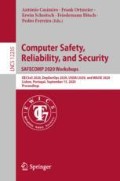Abstract
Building robust-by-design Machine Learning algorithms is key for critical tasks such as safety or military applications. By leveraging on the ideas developed in the context of building invariant Support Vectors Machines, this paper introduces a convenient methodology for embedding local Lie groups symmetries into Deep Learning algorithms by performing a Principal Component Analysis on the corresponding Tangent Covariance Matrix. The projection of the input data onto the principal directions leads to a new data representation which allows singling out the components conveying the semantic information useful to the considered algorithmic task while reducing the dimension of the input manifold. Besides, our numerical testing emphasizes that, although less efficient than using Group-Convolutional Neural Networks as only dealing with local symmetries, our approach does improve accuracy and robustness without introducing significant computational overhead. Performance improvements up to 5% were obtained for low capacity algorithms, making this approach of particular interest for the engineering of safe embedded Artificial Intelligence systems.
Access this chapter
Tax calculation will be finalised at checkout
Purchases are for personal use only
References
Bekkers, E.J.: B-spline CNNs on lie groups. In: International Conference on Learning Representations (2020). https://openreview.net/forum?id=H1gBhkBFDH
Bergomi, M., Frosini, P., Giorgi, D., et al.: Towards a topological-geometrical theory of group equivariant non-expansive operators for data analysis and machine learning. Nat. Mach. Intell. 1, 423–433 (2002). https://doi.org/10.1038/s42256-019-0087-3
Chapelle, O., Schölkopf, B.: Incorporating invariances in nonlinear support vector machines. In: Proceedings of the 14th International Conference on Neural Information Processing Systems: Natural and Synthetic, NIPS 2001, pp. 609–616. MIT Press, Cambridge (2001)
Cohen, T., Welling, M.: Group equivariant convolutional networks. In: Balcan, M.F., Weinberger, K.Q. (eds.) Proceedings of The 33rd International Conference on Machine Learning. Proceedings of Machine Learning Research, PMLR, New York, 20–22 June 2016, vol. 48, pp. 2990–2999 (2016). http://proceedings.mlr.press/v48/cohenc16.html
Cohen, U., Chung, S., Lee, D., et al.: Separability and geometry of object manifolds in deep neural networks. Nat. Commun. 11(746), 1–13 (2020). https://doi.org/10.1038/s41467-020-14578-53
Ensign, D., et al.: The complexity of explaining neural networks through (group) invariants. In: Hanneke, S., Reyzin, L. (eds.) Proceedings of the 28th International Conference on Algorithmic Learning Theory. Proceedings of Machine Learning Research, PMLR, Kyoto University, Kyoto, Japan, 15–17 Oct 2017, vol. 76, pp. 341–359 (2017). http://proceedings.mlr.press/v76/ensign17a.html
Finzi, M., Stanton, S., Izmailov, P., Wilson, A.G.: Generalizing convolutional neural networks for equivariance to lie groups on arbitrary continuous data. arXiv preprint arXiv:2002.12880 (2020)
Glorot, X., Bengio, Y.: Understanding the difficulty of training deep feedforward neural networks. In: Teh, Y.W., Titterington, M. (eds.) Proceedings of the Thirteenth International Conference on Artificial Intelligence and Statistics. Proceedings of Machine Learning Research, PMLR, Chia Laguna Resort, Sardinia, Italy, 13–15 May 2010, vol. 9, pp. 249–256 (2010). http://proceedings.mlr.press/v9/glorot10a.html
Kondor, R.: Group theoretical methods in machine learning. Ph.D. thesis (2008)
Kondor, R., Trivedi, S.: On the generalization of equivariance and convolution in neural networks to the action of compact groups. In: Dy, J.G., Krause, A. (eds.) Proceedings of the 35th International Conference on Machine Learning, ICML 2018, Stockholmsmässan, Stockholm, Sweden, 10–15 July 2018, Proceedings of Machine Learning Research, vol. 80, pp. 2752–2760. PMLR (2018). http://proceedings.mlr.press/v80/kondor18a.html
Larochelle, H., Erhan, D., Courville, A., Bergstra, J., Bengio, Y.: An empirical evaluation of deep architectures on problems with many factors of variation. In: Proceedings of the 24th International Conference on Machine Learning. ICML 2007, pp. 473–480. Association for Computing Machinery, New York (2007). https://doi.org/10.1145/1273496.1273556
LeCun, Y., Bengio, Y.: Convolutional Networks for Images, Speech, and Time Series, pp. 255–258. MIT Press, Cambridge (1998)
LeCun, Y., Cortes, C., Burges, C.: Mnist handwritten digit database. ATT Labs (2010). http://yann.lecun.com/exdb/mnist
Leen, T.K.: From data distributions to regularization in invariant learning. Neural Comput. 7(5), 974–981 (1995). https://doi.org/10.1162/neco.1995.7.5.974
Mallat, S.: Understanding deep convolutional networks. Philos. Trans. R. Soc. A: Math. Phys. Eng. Sci. 374(2065) (2016). https://doi.org/10.1098/rsta.2015.0203
Olver, P.: Applications of Lie Groups to Differential Equations. Springer, New York (1993)
Schölkopf, B., Burges, C., Vapnik, V.: Incorporating invariances in support vector learning machines. In: von der Malsburg, C., von Seelen, W., Vorbrüggen, J.C., Sendhoff, B. (eds.) ICANN 1996. LNCS, vol. 1112, pp. 47–52. Springer, Heidelberg (1996). https://doi.org/10.1007/3-540-61510-5_12
Schölkopf, B., Simard, P., Smola, A., Vapnik, V.: Prior knowledge in support vector kernels. In: Proceedings of the 1997 Conference on Advances in Neural Information Processing Systems, NIPS 1997, vol. 10, pp. 640–646. MIT Press, Cambridge (1998)
Schölkopf, B., Smola, A., Müller, K.-R.: Kernel principal component analysis. In: Gerstner, W., Germond, A., Hasler, M., Nicoud, J.-D. (eds.) ICANN 1997. LNCS, vol. 1327, pp. 583–588. Springer, Heidelberg (1997). https://doi.org/10.1007/BFb0020217
Simard, P.Y., LeCun, Y.A., Denker, J.S., Victorri, B.: Transformation invariance in pattern recognition — tangent distance and tangent propagation. In: Orr, G.B., Müller, K.-R. (eds.) Neural Networks: Tricks of the Trade. LNCS, vol. 1524, pp. 239–274. Springer, Heidelberg (1998). https://doi.org/10.1007/3-540-49430-8_13
Smets, B., Portegies, J., Bekkers, E., Duits, R.: PDE-based group equivariant convolutional neural networks (2020)
Vapnik, V.: The Nature of Statistical Learning Theory. Statistics for Engineering and Information Science. Springer, Heidelberg (2000). https://doi.org/10.1007/978-1-4757-3264-1
Author information
Authors and Affiliations
Corresponding author
Editor information
Editors and Affiliations
Rights and permissions
Copyright information
© 2020 Springer Nature Switzerland AG
About this paper
Cite this paper
Lagrave, PY. (2020). A Principal Component Analysis Approach for Embedding Local Symmetries into Deep Learning Algorithms. In: Casimiro, A., Ortmeier, F., Schoitsch, E., Bitsch, F., Ferreira, P. (eds) Computer Safety, Reliability, and Security. SAFECOMP 2020 Workshops. SAFECOMP 2020. Lecture Notes in Computer Science(), vol 12235. Springer, Cham. https://doi.org/10.1007/978-3-030-55583-2_22
Download citation
DOI: https://doi.org/10.1007/978-3-030-55583-2_22
Published:
Publisher Name: Springer, Cham
Print ISBN: 978-3-030-55582-5
Online ISBN: 978-3-030-55583-2
eBook Packages: Computer ScienceComputer Science (R0)

